Polity is one of the most scoring and reliable sections in the SSC CGL exam. Questions from this topic – covering Articles, Schedules, Amendments, Fundamental Rights, and Duties – are seen in almost every shift. Around 4-5 questions are typically asked, making it a high-return area if prepared well.
Polity Questions and Answers for SSC CGL Exam
To help you revise better, we’ve compiled 50 important MCQs that cover all key constitutional concepts. Go through them seriously, identify your weak points, and strengthen them through practice – because in SSC CGL, even one extra correct answer can make all the difference.
Q1. Under which Article is the Right to Education for children between 6 to 14 years ensured?
(A) Article 45
(B) Article 21
(C) Article 21A
(D) Article 19A
Answer: (C) Article 21A
Q2. The Right to Life and Personal Liberty is guaranteed under which Article?
(A) Article 19
(B) Article 20
(C) Article 21
(D) Article 25
Answer: (C) Article 21
Q3. Employment of children below 14 years as domestic servants has been prohibited under which Article of the Indian Constitution?
(A) Article 21A
(B) Article 24
(C) Article 23
(D) Article 45
Answer: (B) Article 24
Q4. What does Article 1 of the Indian Constitution declare India as?
(A) Union of Territories
(B) Federal State with Unitary Bias
(C) Union of States
(D) Confederation of States
Answer: (C) Union of States
Q5. Which Article of the Constitution deals with “Equality before law”?
(A) Article 14
(B) Article 15
(C) Article 19
(D) Article 21
Answer: (A) Article 14
Q6. Right to Freedom is guaranteed under which Article group?
(A) Article 14-18
(B) Article 19-22
(C) Article 23-24
(D) Article 25-28
Answer: (B) Article 19-22
Q7. Which Article is known for Right to Privacy (as per SC ruling)?
(A) Article 19
(B) Article 20
(C) Article 21
(D) Article 22
Answer: (C) Article 21
Q8. How many Schedules are there in the Indian Constitution?
(A) 10
(B) 12
(C) 13
(D) 11
Answer: (B) 12
Q9. Under which part of the Constitution does the ‘Right against Exploitation’ fall?
(A) Part II
(B) Part III
(C) Part IV
(D) Part IVA
Answer: (B) Part III
Q10. The term ‘Socialist’ and ‘Secular’ were added to the Preamble of the Indian Constitution by which amendment?
(A) 40th Amendment
(B) 42nd Amendment
(C) 44th Amendment
(D) 52nd Amendment
Answer: (B) 42nd Amendment, 1976
Q11. Before the 42nd Constitutional Amendment Act, 1976, the term ‘secular’ was mentioned only in which Article of the Indian Constitution?
(A) Article 14
(B) Article 15
(C) Article 25
(D) Article 26
Answer: (C) Article 25
Q12. Which of the following actions does Article 2 not permit?
(A) Admission of a foreign territory
(B) Establishment of a new state
(C) Renaming an existing state
(D) All of the above
Answer: (C) Renaming an existing state
Q13. On what basis is citizenship granted in India under the Citizenship Act, 1955?
(A) Only by birth and descent
(B) By religion and region
(C) By birth, descent, registration, naturalisation, and incorporation of territory
(D) By race and caste
Answer: (C) By birth, descent, registration, naturalisation, and incorporation of territory
Q14. Under which article can Parliament alter the boundaries or name of existing states?
(A) Article 2
(B) Article 4
(C) Article 5
(D) Article 3
Answer: (D) Article 3
Q15. How many Parts were there in the Constitution of India at the time of its commencement?
(A) 22
(B) 25
(C) 20
(D) 18
Answer: (A) 22
Q16. Directive Principles of State Policy are mentioned under which Part of the Constitution?
(A) Part III
(B) Part IV
(C) Part V
(D) Part VI
Answer: (B) Part IV – {Art 36-51}
Q17. Emergency provisions are covered under which parts of the Indian Constitution?
(A) Part XI
(B) Part XV
(C) Part XVIII
(D) Part XX
Answer: (C) Part XVIII – {Art 352-360}
Q18. Which article guarantees protection against arrest in certain cases?
(A) Article 22
(B) Article 23
(C) Article 14
(D) Article 19
Answer: (A) Article 22
Q19. Which Article of the Constitution defines the term ‘State’ for the purpose of DPSP?
(A) Article 12
(B) Article 36
(C) Article 38
(D) Article 51
Answer: (B) Article 36
Q20. The Directive Principles are non-justiciable, meaning-
(A) They are legally enforceable
(B) They cannot be enforced in any court
(C) They are mentioned in the Preamble
(D) They override Fundamental Rights
Answer: (B) They cannot be enforced in any court
Q21. Which article was added by the 42nd Amendment to ensure equal justice and free legal aid?
(A) Article 39
(B) Article 39A
(C) Article 45
(D) Article 50
Answer: (B) Article 39A
Q22. Article 48A, added by the 42nd Amendment, deals with-
(A) Organisation of village panchayats
(B) Promotion of international peace
(C) Protection and improvement of environment
(D) Equal pay for equal work
Answer: (C) Protection and improvement of environment
Q23. Which of the following Articles directs the State to secure a Uniform Civil Code?
(A) Article 44
(B) Article 43
(C) Article 45
(D) Article 46
Answer: (A) Article 44
Q24. Fundamental Duties are mentioned under which article of the Indian Constitution?
(A) Article 32
(B) Article 51A
(C) Article 48A
(D) Article 50
Answer: (B) Article 51A
Q25. How many Fundamental Duties are there in the Constitution of India as of now?
(A) 10
(B) 11
(C) 12
(D) 9
Answer: (B) 11
Q26. Which Amendment Act introduced the Fundamental Duties?
(A) 44th Amendment
(B) 42nd Amendment
(C) 86th Amendment
(D) 52nd Amendment
Answer: (B) 42nd Amendment
Q27. The 11th Fundamental Duty added in 2002 is related to-
(A) Environment
(B) National Anthem
(C) Providing Education
(D) Education of children
Answer: (D) Education of children
Q28. Which committee recommended the inclusion of Fundamental Duties?
(A) Punchhi Committee
(B) Sarkaria Committee
(C) Sawaran Singh Committee
(D) Rajamannar Committee
Answer: (C) Sawaran Singh Committee
Q29. Fundamental Duties are listed under which part of the Constitution?
(A) Part III
(B) Part IV
(C) Part V
(D) Part IV-A
Answer: (D) Part IV-A
Q30. Who is the Constitutional Head of the Indian Union?
(A) Prime Minister
(B) President
(C) Vice-president
(D) Chief Justice
Answer: (B) President
Q31. The Union Executive consists of –
(A) President and Prime Minister
(B) President, Vice-President and Prime Minister only
(C) President, Vice-President, Prime Minister and Council of Ministers
(D) President, Prime Minister, Council of Ministers and Attorney General of India
Answer: (D) President, Prime Minister, Council of Ministers and Attorney General of India
Q32. The President of India is elected by-
(A) Direct election by people
(B) Rajya Sabha members only
(C) Lok Sabha Members only
(D) Elected members of Parliament and State Legislatures
Answer: (D) Elected members of Parliament and State Legislatures
Q33. Article 75 deals with-
(A) Election of President
(B) Appointment of Prime Minister
(C) Powers of Supreme Court
(D) Impeachment of President
Answer: (B) Appointment of Prime Minister
Q34. The real executive power in India is vested in-
(A) President
(B) Prime Minister
(C) Council of Ministers headed by PM
(D) Chief Justice of India
Answer: (C) Council of Ministers headed by PM
Q35. The Union Parliament consists of-
(A) Lok Sabha only
(B) Lok Sabha and Rajya Sabha only
(C) President, Rajya Sabha and Lok Sabha
(D) President and Lok Sabha
Answer: (C) President, Rajya Sabha and Lok Sabha
Q36. Which Schedule of the Indian Constitution deals with the Anti-Defection Law?
(A) 7th
(B) 8th
(C) 10th
(D) 12th
Answer: (C) 10th
Q37. The languages recognized by the constitution are listed in-
(A) 7th Schedule
(B) 8th Schedule
(C) 10th Schedule
(D) 6th Schedule
Answer: (B) 8th Schedule
Q38. Provision related to administration of tribal areas in Assam, Meghalaya, Tripura and Mizoram are in –
(A) 4th Schedule
(B) 6th Schedule
(C) 5th Schedule
(D) 11th Schedule
Answer: (B) 6th Schedule
Q39. The 12th Schedule deals with-
(A) Municipalities
(B) Union territories
(C) Tribes and Tribal Areas
(D) Languages
Answer: (A) Municipalities {74th Amendment Act, 1992}
Q40. What does the 5th Schedule deal with?
(A) Protection of Civil Rights
(B) Scheduled Areas and Tribes (except NE)
(C) Emergency Provisions
(D) Languages
Answer: (B) Scheduled Areas and Tribes (except NE)
Q41. Article 352 is related to-
(A) President’s Rule
(B) Financial Emergency
(C) National Emergency
(D) None of the above
Answer: (C) National Emergency
Q42. Which article allows the imposition of President’s Rule in a state?
(A) Article 355
(B) Article 356
(C) Article 357
(D) Article 360
Answer: (B) Article 356
Q43. During National Emergency, the Fundamental Rights under which Article are automatically suspended?
(A) Article 19
(B) Article 21
(C) Article 22
(D) Article 14
Answer: (A) Article 19
Q44. The Proclamation of Emergency must be approved by parliaments within-
(A) 1 month
(B) 2 months
(C) 3 months
(D) 6 months
Answer: (A) 1 month
Q45. Which Amendment replaced “internal disturbance” with “armed rebellion” in Article 352?
(A) 42nd Amendment
(B) 44th Amendment
(C) 52nd Amendment
(D) 62nd Amendment
Answer: (B) 44th Amendment
Q46. Under President’s Rule, the powers of the State Legislature are excised by-
(A) Prime Minister
(B) President
(C) Parliament
(D) Governor
Answer: (C) Parliament
Q47. Which Article empowers the Governor of a State to grant pardon or reduce the sentence of a convict?
(A) Article 161
(B) Article 72
(C) Article 356
(D) Article 239
Answer: (A) Article 161
Q48. Identify the correctly matched pair:
(A) Article 370 – Panchayati Raj
(B) Article 44 – Uniform Civil Code
(C) Article 324 – Finance Commission
(D) Article 280 – Election Commission
Answer: (B) Article 44 – Uniform Civil Code
Q49. Which of the following is not a writ issued by Supreme or High Courts?
(A) Habeas Corpus
(B) Mandamus
(C) Prohibition
(D) Interlocutory
Answer: (D) Interlocutory {type of court order}
Q50. What is the retirement age of Supreme Court Judges?
(A) 60 years
(B) 62 years
(C) 65 years
(D) 70 years
Answer: (C) 65 years

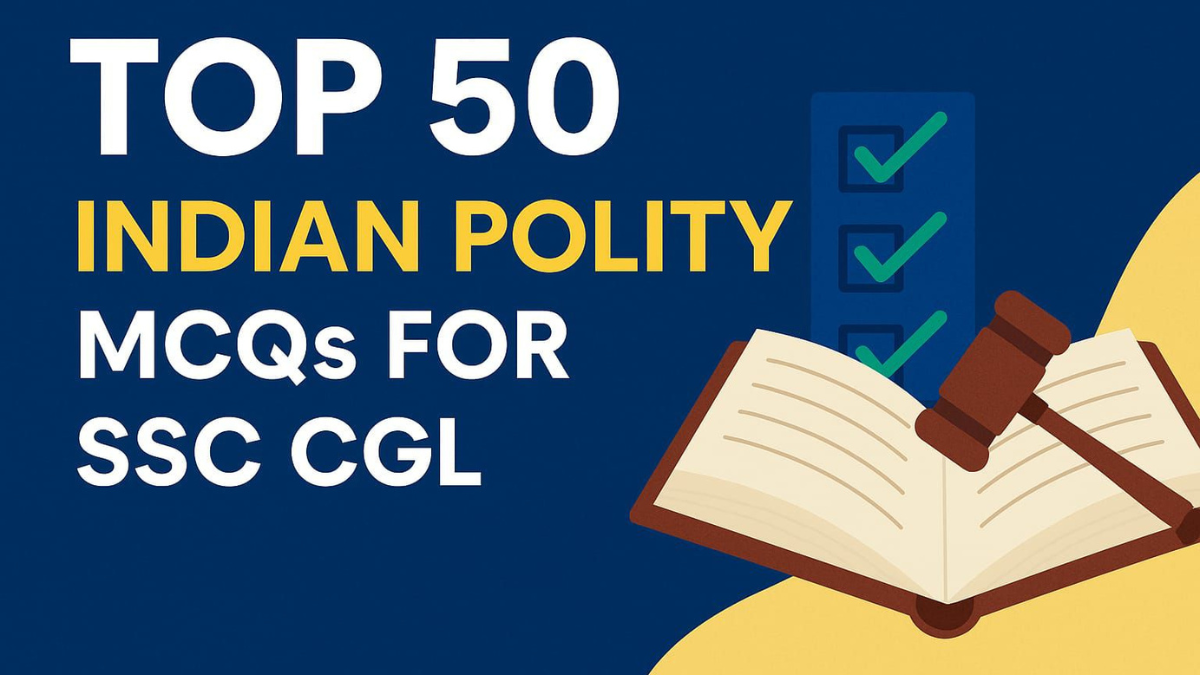
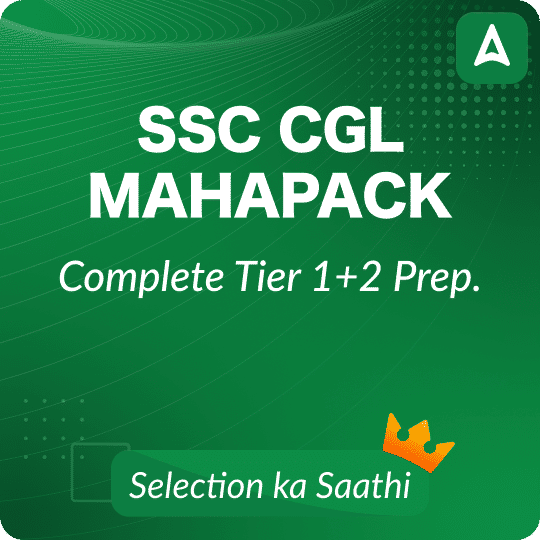

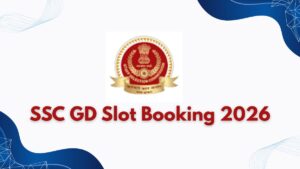 SSC GD Slot Booking 2026, Check Latest N...
SSC GD Slot Booking 2026, Check Latest N...
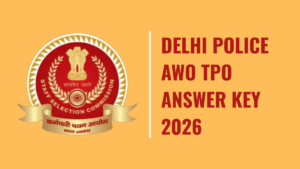 Delhi Police AWO TPO Answer Key 2026 Out...
Delhi Police AWO TPO Answer Key 2026 Out...
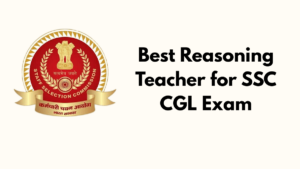 Best Reasoning Teacher for SSC CGL Exam
Best Reasoning Teacher for SSC CGL Exam
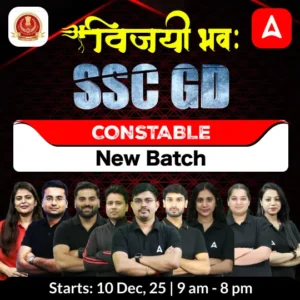
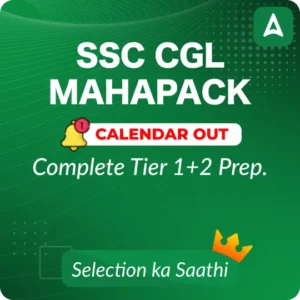
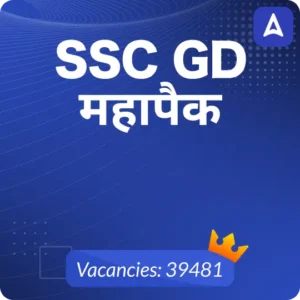
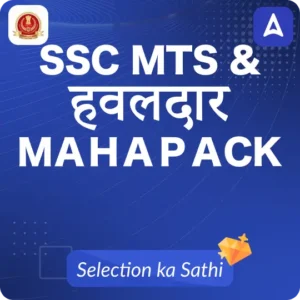
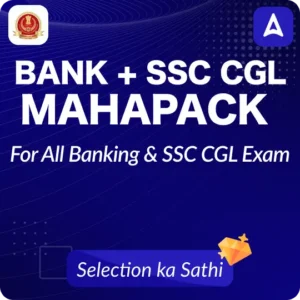
 Adda247 Job portal has complete information about all Sarkari Jobs and Naukri Alerts, its latest recruitment notifications, from all state and national level jobs and their updates.
Adda247 Job portal has complete information about all Sarkari Jobs and Naukri Alerts, its latest recruitment notifications, from all state and national level jobs and their updates.




